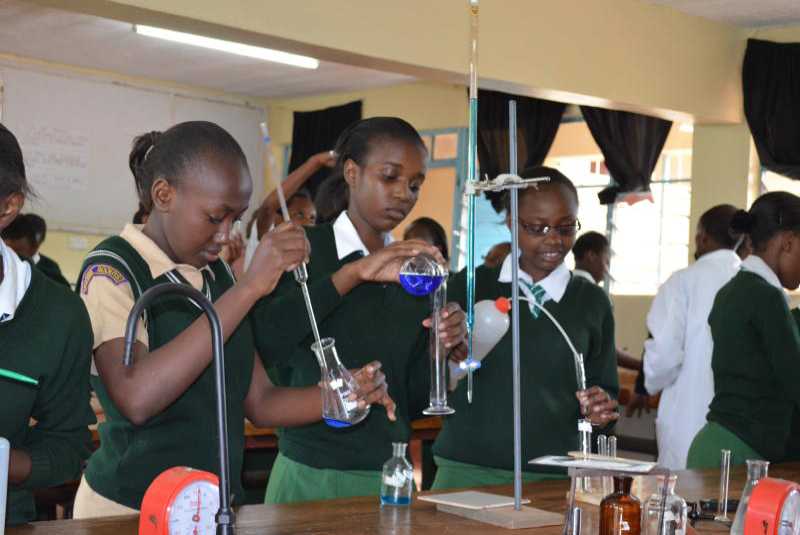×
The Standard e-Paper
Smart Minds Choose Us

Stella Njeri (in the middle) in a chemistry lesson in the laboratory despite struggling with kidney failure. She requires Sh 3 million to facilitate transplant in India. [PHOTO: BONIFACE GIKANDI]
A new plan has been developed to improve girls’ performance in sciences, technology, engineering and mathematics.